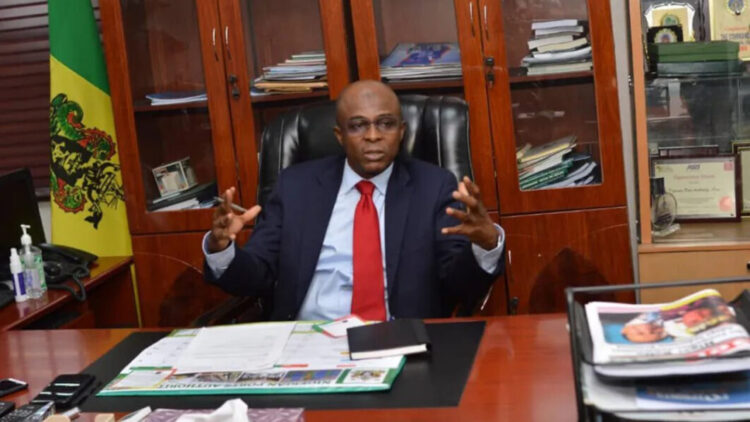The Nigerian Ports Authority (NPA) has projected a 30 per cent growth in trade volume by 2030 given ongoing improvements in port infrastructure.
The Managing Director of NPA, Abubakar Dantsoho said this, highlighting the potential of the maritime sector to generate over one million jobs by 2028 and double its contribution to the gross domestic product (GDP) from 1.5 per cent to three per cent by 2035.
Dantsoho stated this yesterday in Lagos at the Association of Maritime Journalists of Nigeria (AMJON) 2024 yearly conference and awards.
Dantsoho, who was represented by the Port Manager, Lagos Port Complex, Adebowale Ibrahim, unveiled a strategic plan aimed at revolutionising the country’s maritime sector, projecting significant trade growth, job creation and economic contributions in the coming years.
He said the growth would be achievable through strategic investments and partnerships that would drive efficiency, sustainability and innovation in port operations.
To achieve the ambitious goals, he said, the NPA is adopting a multi-pronged funding approach, including increased government budgetary allocations for critical port projects, harnessing Public-Private Partnerships (PPPs) expertise and funding.
Others, he listed, are partnering with development banks and global agencies and channelling revenue generated by ports back into infrastructure and service improvements.
He, however, acknowledged the challenges facing the maritime sector, such as infrastructure deficits, funding inadequacies and security concerns.
Dantsoho outlined actionable solutions to the challenges to include, accelerated investments in port infrastructure, strengthened maritime security through collaborations with global organisations and policy reforms to attract both foreign and domestic investors.
Dantsoho reaffirmed NPA’s commitment to driving the Blue Economy forward and positioning Nigeria as a leading maritime hub in West and Central Africa.
The former National President of the Association of Nigeria Licensed Customs Agents (ANLCA), Tony Iju Nwabunike, urged the Federal Government to prioritise the modernization of Nigeria’s border controls and maritime infrastructure to enhance national security and trade efficiency.
Nwabunike, who is also the patron of AMJON, emphasised the importance of adopting smart border technologies and reviving underutilised ports to align with the African Continental Free Trade Agreement (AfCFTA).
Citing statistics from the International Office of Migration (IOM), Nwabunike highlighted Nigeria’s extensive border network, which includes 86 official land borders, 14 seaport border control posts, and approximately 364 approved international border points.
He said Despite this vast network, none currently meets the criteria for a “smart border.”
Nwabunike explained that smart borders incorporate features like automated cargo tracking, biometric profiling of travellers, and real-time data storage for analytics,” Nwabunike explained.
He stressed that Nigeria’s slow pace in border modernisation poses risks to national security and economic efficiency, particularly as the country seeks to capitalise on trade opportunities within Africa.
















